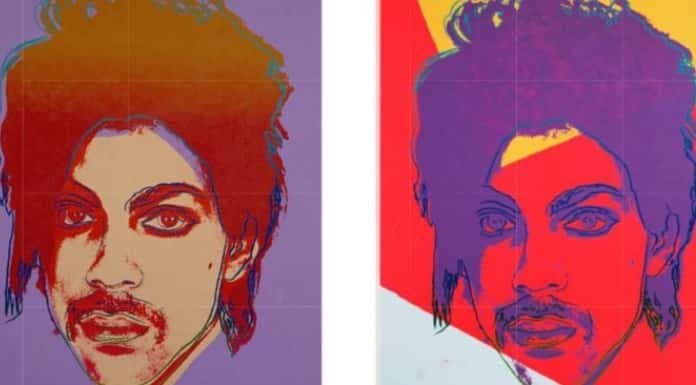

Have any suggestions for the 3 Count? Let me know via Twitter @plagiarismtoday.
1: Photographer Suing Andy Warhol’s Estate Claims His Work Isn’t “Transformative”
First off today, Ashley Cullins at The Hollywood Reporter Esquire reports that photographer Lynn Goldsmith and the estate of Andy Warhol have filed motions for summary judgment in their dispute over a 1984 series by the artist that used Goldsmith’s work as a basis.
The dispute began in April 2017 as the estate filed a preemptive lawsuit against Goldsmith asking the court to declare that Warhol’s 16 drawings of the musician Prince were not copyright infringement. According to Goldsmith, who filed a counterclaim, she had licensed her 1981 image of prince to Vanity Fair for to serve as reference for a single illustration. However, she alleges that Warhol then made 16 pieces based on the image and that they are not transformative enough to constitute a fair use.
However, the estate counters by claiming that the only things present from the original work in Warhol’s is the outline of Prince’s face, which is not protectable by copyright. As such, both sides have filed a motion for summary judgment, essentially asking the judge to rule in their favor without letting the case reach a trial.
2: Lawyers in Ed Sheeran Song-Theft Case Debate Impact of Stairway To Heaven Appeals Court Judgement
Next up today, Chris Cook at Complete Music Update reports that both sides in the lawsuit over the Ed Sheeran song Thinking Out Loud are citing the recent appeals court ruling in the Stairway to Heaven case to back up their arguments.
The case pits Sheeran against Ed Townsend, a co-writer for the Marvin Gaye song Let’s Get it On. According to Townsend, Sheeran’s song Thinking Out Loud is an infringement of it. However, in a separate but similar case involving the band Led Zeppelin and the song Stairway to Heaven, the appeals court overturned a jury verdict in favor of Led Zeppelin (the defendants) saying that the jury had not received all of the needed evidence and had been inappropriately denied the chance to listen to both songs.
According to Sheeran, this ruling actually favors them because the court did uphold the lower court’s interpretation of the limitations of copyright in a composition. However, in his own motion, Townsend disputes that and further claims that the ruling impacts the presentation of evidence in their case.
3: Western Tennessee Judge Denies Spotify’s Motions to Dismiss Copyright Infringement Claims Brought by Bluewater Music
Finally today, Steve Brackmann at IPWatchdog reports that a judge has denied Spotify’s motion to dismiss in their lawsuit against copyright administration company Bluewater Music Corporation.
According to Bluewater, they hold the copyright to some 2,142 musical compositions that are either being streamed on Spotify without permission or with a license that has expired. Spotify, in a motion to dismiss, claimed that Bluewater lacked standing in many of the songs because they did not own the tracks involved and, instead, were mere administrators to them.
However, the judge found that Bluewater had an exclusive license to those songs, which met the copyright act’s burden for standing. As such, the judge is allowing the case to move forward on all of the songs. For those songs, Bluewater is seeking the maximum statutory damages, $150,000 per song, which brings the potential liability to $321.3 million.
The 3 Count Logo was created by Justin Goff and is licensed under a Creative Commons Attribution License.
Want to Reuse or Republish this Content?
If you want to feature this article in your site, classroom or elsewhere, just let us know! We usually grant permission within 24 hours.